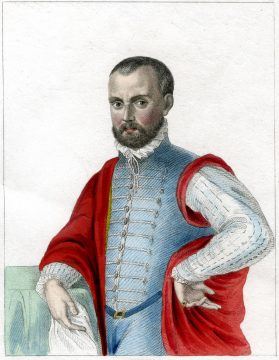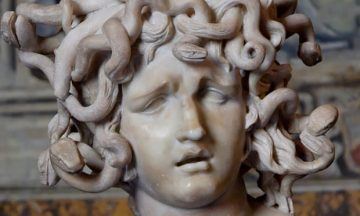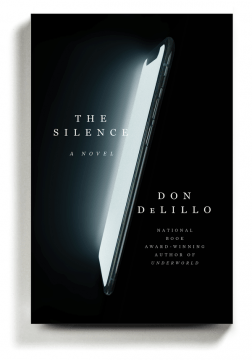 Jordi Vaquer in Idees:
Jordi Vaquer in Idees:
The world currently finds itself immersed in the so-called “third wave” of authoritarianism. Since the start of the twenty-first century, and especially over the last five years, more and more countries have been losing the characteristics of a democracy and becoming hybrid — Hybrid regimes combine characteristics of both democratic and authoritarian regimes. The term has been used to define a range of governments, including the electoral autocracies of the 1960s and 1970s (such as those in Mexico, Singapore, Senegal and Taiwan) and the so-called “illiberal democracies” of today. See L. Diamond (2002), “Elections Without Democracy: Thinking About Hybrid Regimes” in Journal of Democracy 13-2, pages 21-35. or openly autocratic regimes. For the first time since 2001, there are more autocracies (specifically, 92 countries, which together are home to 54% of the world’s population) than democracies, while 35% of the world’s population lives in countries governed by increasingly authoritarian regimes — AV ‘Autocratization Surges, Resistance Grows’ in Democracy Report 2020, VDem Institute, University of Gothenburg, March 2020.. The positive progress made in countries such as the Gambia, Ethiopia, Sudan, Armenia and Malaysia are exceptions within a global framework that is less and less favourable to liberal democracies with each day that passes.
The traditional means by which authoritarian regimes are installed, such as coups d’état and civil conflict, have played an important role in this new wave of authoritarianism (Thailand and Egypt are both excellent examples). However, the chief characteristic of this new political development is that the primary vector of authoritarianism is elected governments, which despite their clear disdain for the mechanisms that serve to control and balance power, still manage to gain and retain popular support in competitive elections. Moreover, they are doing so, and herein lies the great novelty — In the 1990s and 2000s, hybrid regimes were usually the result of incomplete transitions toward democracy and were mostly more open than the dictatorships that had preceded them. See T. Carothers (2002), “The End of the Transition Paradigm” in Journal of Democracy 13-1, pages 1-21., in countries with a relatively consolidated democratic history and a tradition of pluralism.
More here.


 THE FINAL TALLY OF ECONOMIC DAMAGE
THE FINAL TALLY OF ECONOMIC DAMAGE In a perfect world, we would learn from success and failure alike. Both hold instructive lessons and provide needed reality checks that may safeguard our decisions from bad information or biased advice. But, alas, our brain doesn’t work this way. Unlike an impartial outcome-weighing machine an engineer might design, it learns more from some experiences than others. A few of these biases may already sound familiar: A positivity bias causes us to weigh rewards more heavily than punishments. And a confirmation bias makes us take to heart outcomes that confirm what we thought was true to begin with but discount those that show we were wrong. A new study, however, peels away these biases to find a role for choice at their core. A bias related to the choices we make explains all the others, says Stefano Palminteri of the French National Institute for Health and Medical Research (INSERM), who conducted a study published in Nature Human Behaviour in August
In a perfect world, we would learn from success and failure alike. Both hold instructive lessons and provide needed reality checks that may safeguard our decisions from bad information or biased advice. But, alas, our brain doesn’t work this way. Unlike an impartial outcome-weighing machine an engineer might design, it learns more from some experiences than others. A few of these biases may already sound familiar: A positivity bias causes us to weigh rewards more heavily than punishments. And a confirmation bias makes us take to heart outcomes that confirm what we thought was true to begin with but discount those that show we were wrong. A new study, however, peels away these biases to find a role for choice at their core. A bias related to the choices we make explains all the others, says Stefano Palminteri of the French National Institute for Health and Medical Research (INSERM), who conducted a study published in Nature Human Behaviour in August  Even
Even  Jordi Vaquer in Idees:
Jordi Vaquer in Idees: Samantha Rose Hill in Aeon:
Samantha Rose Hill in Aeon: F
F DeLillo’s new one is a pristine disaster novel with apocalyptic overtones. It’s a Stephen King novel scored by Philip Glass instead of Chuck Berry. A plane from Paris to Newark crash-lands. Two of the main characters are on this flight, and they survive. Power grids have gone down all over the world. Aliens? The Chinese? The Joker? QAnon?
DeLillo’s new one is a pristine disaster novel with apocalyptic overtones. It’s a Stephen King novel scored by Philip Glass instead of Chuck Berry. A plane from Paris to Newark crash-lands. Two of the main characters are on this flight, and they survive. Power grids have gone down all over the world. Aliens? The Chinese? The Joker? QAnon? Sometime in the coming months, our prayers will have been answered. The researchers will have pulled their all-nighters, mountains will have been moved, glass vials will have been shipped, and a vaccine that protects us from the novel coronavirus will be here. We will all clamber to get it so we can go back to school, work, restaurants, and life. All of us, that is, except for people like Marcus Nel-Jamal Hamm. Hamm, a Black actor and professional wrestler, is what some might call an “anti-vaxxer,” though he finds that term derogatory and reductive. Since about 2013, he’s been running a Facebook page called “Over Vaccination Nation,” which now has more than 3,000 followers. One recent post
Sometime in the coming months, our prayers will have been answered. The researchers will have pulled their all-nighters, mountains will have been moved, glass vials will have been shipped, and a vaccine that protects us from the novel coronavirus will be here. We will all clamber to get it so we can go back to school, work, restaurants, and life. All of us, that is, except for people like Marcus Nel-Jamal Hamm. Hamm, a Black actor and professional wrestler, is what some might call an “anti-vaxxer,” though he finds that term derogatory and reductive. Since about 2013, he’s been running a Facebook page called “Over Vaccination Nation,” which now has more than 3,000 followers. One recent post  David Byrne’s American Utopia begins with the sound of birds for close to a minute before revealing the singer, seated alone at a desk, holding a human brain. Otherwise, the stage is empty, save for a curtain composed of hundreds of thin metal chains that line the walls and shimmer like streaks of rain. As in Stop Making Sense, the 1984 Talking Heads concert film, band members emerge as the show progresses. They, like Byrne, are dressed in gray suits, with no shoes, no socks. It’s a stripped-down look for a show that is as cerebral and subtly political as it is raucous and joyful. Byrne wrote or cowrote almost every song in it—a few are from his 2018 album of the same name, and about half are familiar Talking Heads tunes, including a version of “Once in a Lifetime” that’s somehow even more poignant than the original. But it’s a cover of Janelle Monáe’s “Hell You Talmbout,” one of American Utopia’s last songs, that becomes its soul. In between, Byrne muses, philosophically and humorously, on whether babies are smarter than grown-ups and why people are more interesting to look at than, say, a bag of potato chips.
David Byrne’s American Utopia begins with the sound of birds for close to a minute before revealing the singer, seated alone at a desk, holding a human brain. Otherwise, the stage is empty, save for a curtain composed of hundreds of thin metal chains that line the walls and shimmer like streaks of rain. As in Stop Making Sense, the 1984 Talking Heads concert film, band members emerge as the show progresses. They, like Byrne, are dressed in gray suits, with no shoes, no socks. It’s a stripped-down look for a show that is as cerebral and subtly political as it is raucous and joyful. Byrne wrote or cowrote almost every song in it—a few are from his 2018 album of the same name, and about half are familiar Talking Heads tunes, including a version of “Once in a Lifetime” that’s somehow even more poignant than the original. But it’s a cover of Janelle Monáe’s “Hell You Talmbout,” one of American Utopia’s last songs, that becomes its soul. In between, Byrne muses, philosophically and humorously, on whether babies are smarter than grown-ups and why people are more interesting to look at than, say, a bag of potato chips. In just a few years, scientists at Vera C. Rubin Observatory in Chile will launch the Legacy Survey of Space and Time (LSST), using the world’s biggest digital camera for ground-based astronomy to take the most detailed pictures of the night sky ever made. When they do, two of the most important things they’ll look for are dark matter and dark energy, the mysterious, invisible substances that make up about 95% of our universe.
In just a few years, scientists at Vera C. Rubin Observatory in Chile will launch the Legacy Survey of Space and Time (LSST), using the world’s biggest digital camera for ground-based astronomy to take the most detailed pictures of the night sky ever made. When they do, two of the most important things they’ll look for are dark matter and dark energy, the mysterious, invisible substances that make up about 95% of our universe.